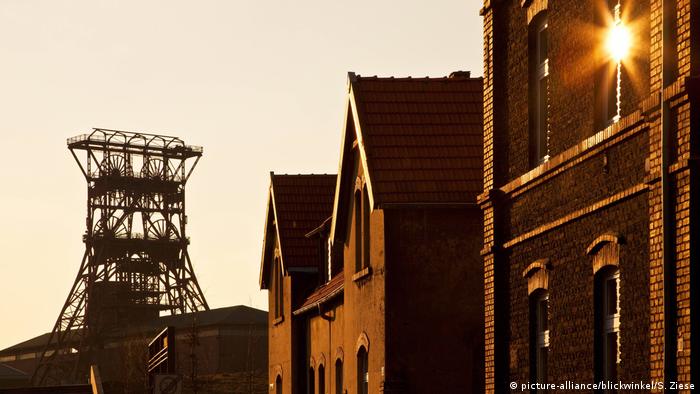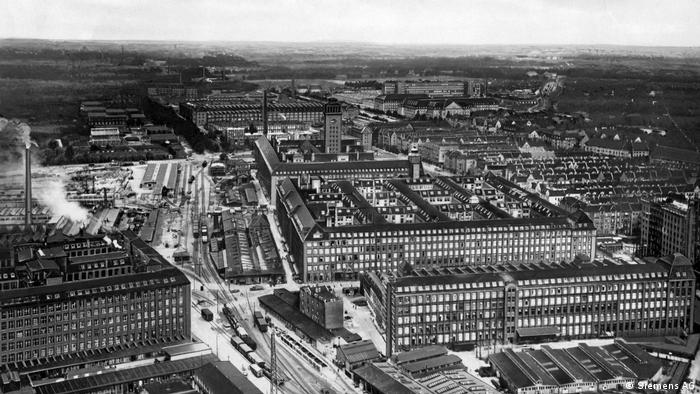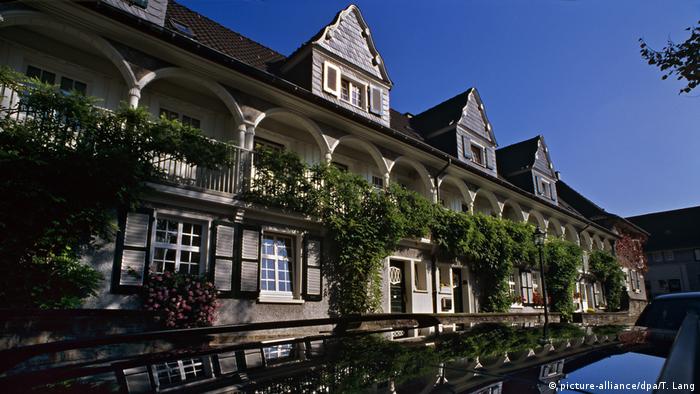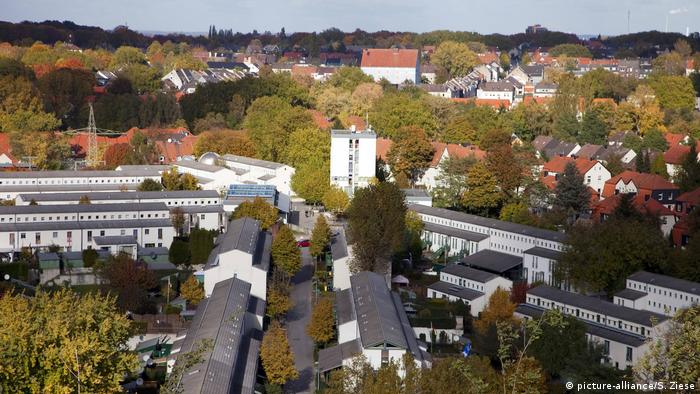Two current problems, namely the shortage of skilled workers and the shortage of housing, to go now some companies, including the Deutsche Bahn, at the same time: they want to build settlements. So completely new, the idea is not.

The economy is booming, many workers migrate from the foreign countries and from the less prosperous hinterland that there is housing shortage. Sounds currently? But it was in the early days of the 19th century. Century already. There were hundreds of colonies, especially in the Rhineland and the Ruhr area (see product image: factory flats in the shadow of the support tower of Zeche Consolidation, Gelsenkirchen).
The settlements were mostly directly on the factory site, was the residential right to the employment contract, and to a certain conduct, coupled. Who went on strike or unionized, was in danger of losing the roof over your head. Residents of the BASF-colony, whose sons were employed, 14 years old, but not in the factory, not even undertook, “to condone the same in the apartment”, according to the Association of the Rhein-Neckar-industrial culture.
Factory supervisors, foremen and administrators lived in the colonies. Your – comfortable – houses were preferred in the vicinity of the inputs: So you were able to keep the staff in the evening in the eye.

One of the most famous early examples of a factory settlement, the so-called Siemensstadt in Berlin.
Grateful to still be in retirement
At the same time, the houses were much better equipped than the former for poor people quarters. They had gardens, they could keep it small livestock for their own needs. The maintenance took care of repairs and modernization.
Many of these former settlements are now no longer on the edge, but in the middle of the city, and are partly under monument protection. The companies you have sold to pension funds and insurance companies or to the tenants.
If the old factory living relatives still there, do you tolerate a lot more noise and other emissions. The night has a layer of noise, do not rush to the environmental protection authority, but rejoice that your former employer has yet to do well.
Professionals attract and keep
In this Tradition, the Mittelstand initiative “Job and Housing” of the Federal Association of medium-sized businesses, BVMW builds now. The Association represents around 900,000 small and medium-sized companies, with about 12 million workers. “No matter which company, all the reports: We can’t get people,” says the Chairman of the Federal Commission of BVMW, the lawyer Peter Diedrich. Some companies would have to reject for this reason, lucrative contracts, or contract to pay penalties.
A affordable apartment in the big city would attract the coveted skilled workers, and the turnover of binding: You think twice, to change jobs, if the budget is lost.
However, because of a smaller industrial company, a care service or an Automotive repair shop, in contrast to a group, not the financial strength to stand alone the construction, has Diedrich designed to be a cooperative model. For the establishment of a cooperative have at least three members are necessary: All have the same voting rights and acquire shares according to your need.
The first cooperative was formed at the end of June in Berlin at the Start. The seven companies from different industries want to build in the coming years, a settlement in Spandau with approximately 100 parties. The first families could move in by the end of 2020. A further two settlements are already in the planning stage.

The Marga then the amount in food: The 1906-built apartments were at the height of the time – both technically and aesthetically.
Classless and not expensive
The engineering company GSE with around 50 employees, is involved with five apartments in the project. “We believe that this is a good idea. We feel the shortage of skilled workers and want to increase our attractiveness as an employer this,” says civil engineer Jorg Enseleit. “We will advertise these apartments, but also our current staff and ask who has an interest”.
The rent is for Berlin standards fabulously affordable: costs 8,50 Euro per square meter. 30 percent of the apartments will be publicly subsidized, and Employees of member companies with a small budget awarded. There, the square meter will cost 6.50 euros per month.
“There is no Business and no Economy Class type”, promises to be the Initiator of Diedrich and puts instead “Beautiful Living for Everyone” in a view. The Initiative expects 2350 Euro cost per square feet total: in many cases, cheaper than usual.
Cheaper to build
Conveniently, it is because the cooperative buys no land, The settlements are created on municipal land in the leasehold or on land, the introduction of members of the cooperative as non-operating real estate. The latter is possible, because the legislator has facilitated the approval of “mixed-use Urban neighbourhoods”. The previous projects, however, are in pure residential areas with a good public TRANSPORT connection.
Money will also be saved by using pre-made components: “Depending on how many floors are at the particular location is permissible, we use massive building materials or wood,” says architect Eva Dedering. “We are developing on the same pitch pattern, so that 1 – until 4-room flats combined in a flexible way”. Your designs show white Blocks with colourful elements and a lot of Green, with day-care centres and Gemeinschaftscafés.

The Gelsenkirchen-based settlement schüngel mountain was built for the workers of the Zeche Hugo. Thanks to the structural change here instead of the support trees, towers today are growing up in the skies over the district of Buer.
Housing as a “Non-Profit Model”
The architect is convinced that the project school will make. If there are then types of building permits, would it still be faster and cheaper. And the state would reimburse the workers ‘ housing, as in the case of Hotel – and office buildings, the value added tax and for subsidized apartments, the real estate transfer tax enacted as the SME demand, could drop the Rent further.
“We want to make as a company can’t profit with the apartments,” stresses Enseleit. The members of the cooperative bear the costs of 20 percent of the investment, 15 percent to the shoots, the investment Bank Berlin (IBB) as a public promotion. The Rest are loans. “We know the biggest open-mindedness in the Berlin policy,” says Diedrich: “Job & Wohnen” will be understood as a counter-proposal to the Mietdeckel and the call for nationalization. “Nationalisation does not create a single square metre of additional floor space,” says Diedrich: “Our Non-Profit model already”. A huge interest also in Munich, Hamburg, Dresden or Rostock.
In Munich, where the situation is even more tense than in Berlin, by the way, has taken the works Council of Stadtwerke, one of the largest municipal utilities in Europe, far from the Initiative. Since 2016, a cooperative has built 550 apartments, to a bus driver and an electrical engineer can afford an apartment in their own city still. In the next few years a further 500 apartments are planned. The idea was 2017 for the Federal works councils, price-wide nominated.

